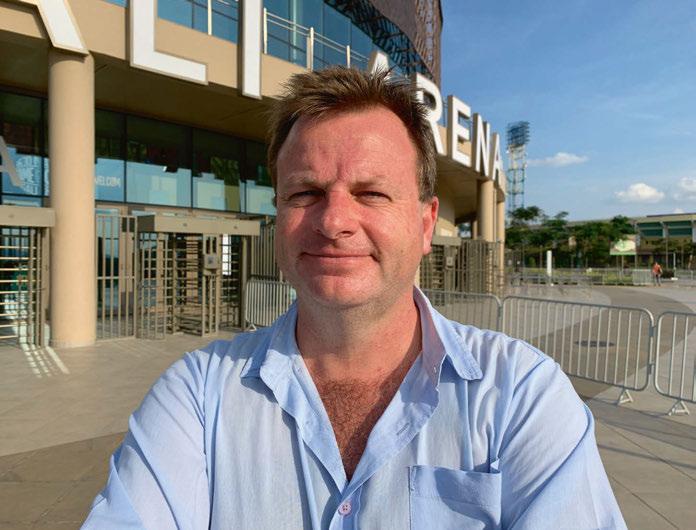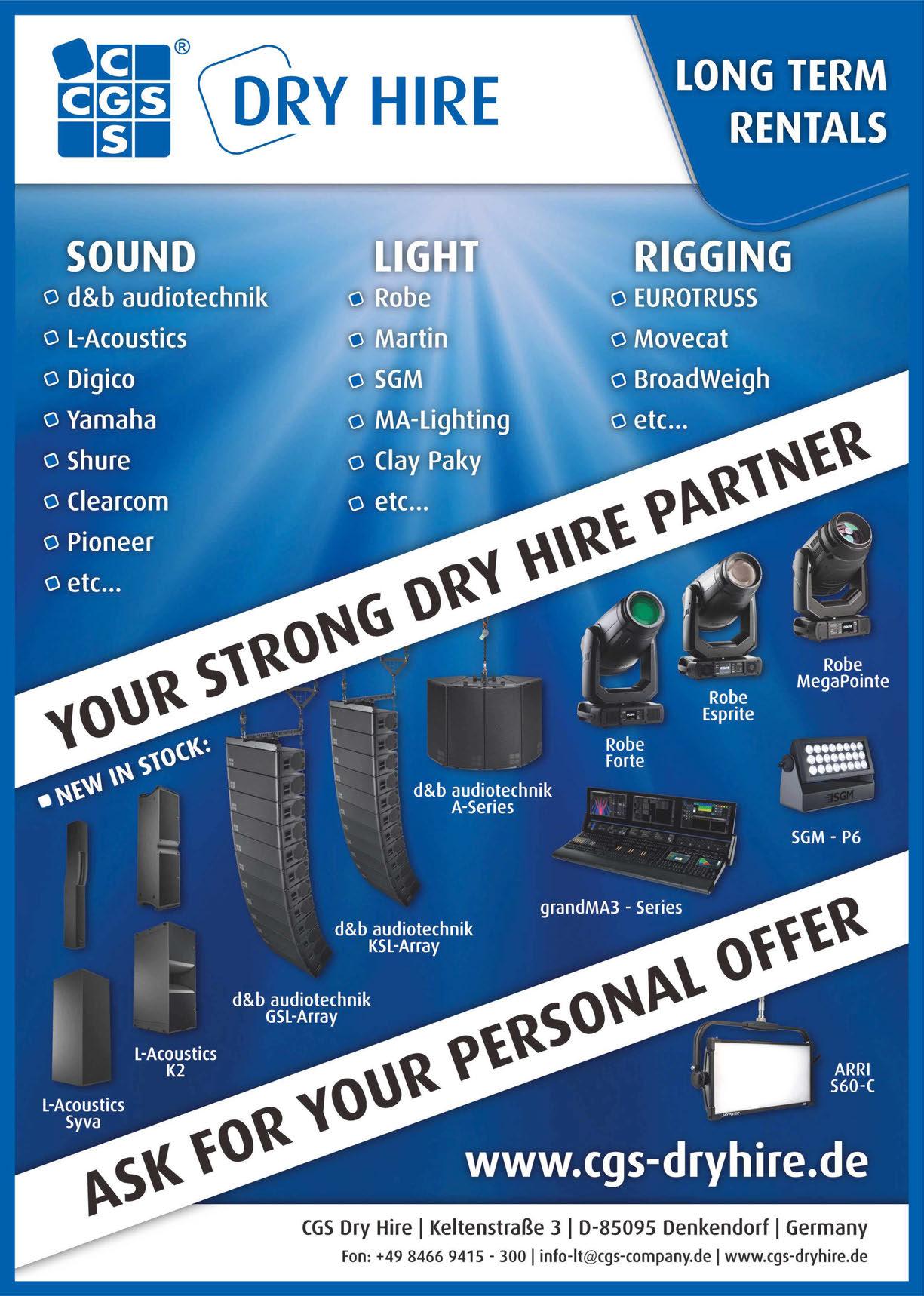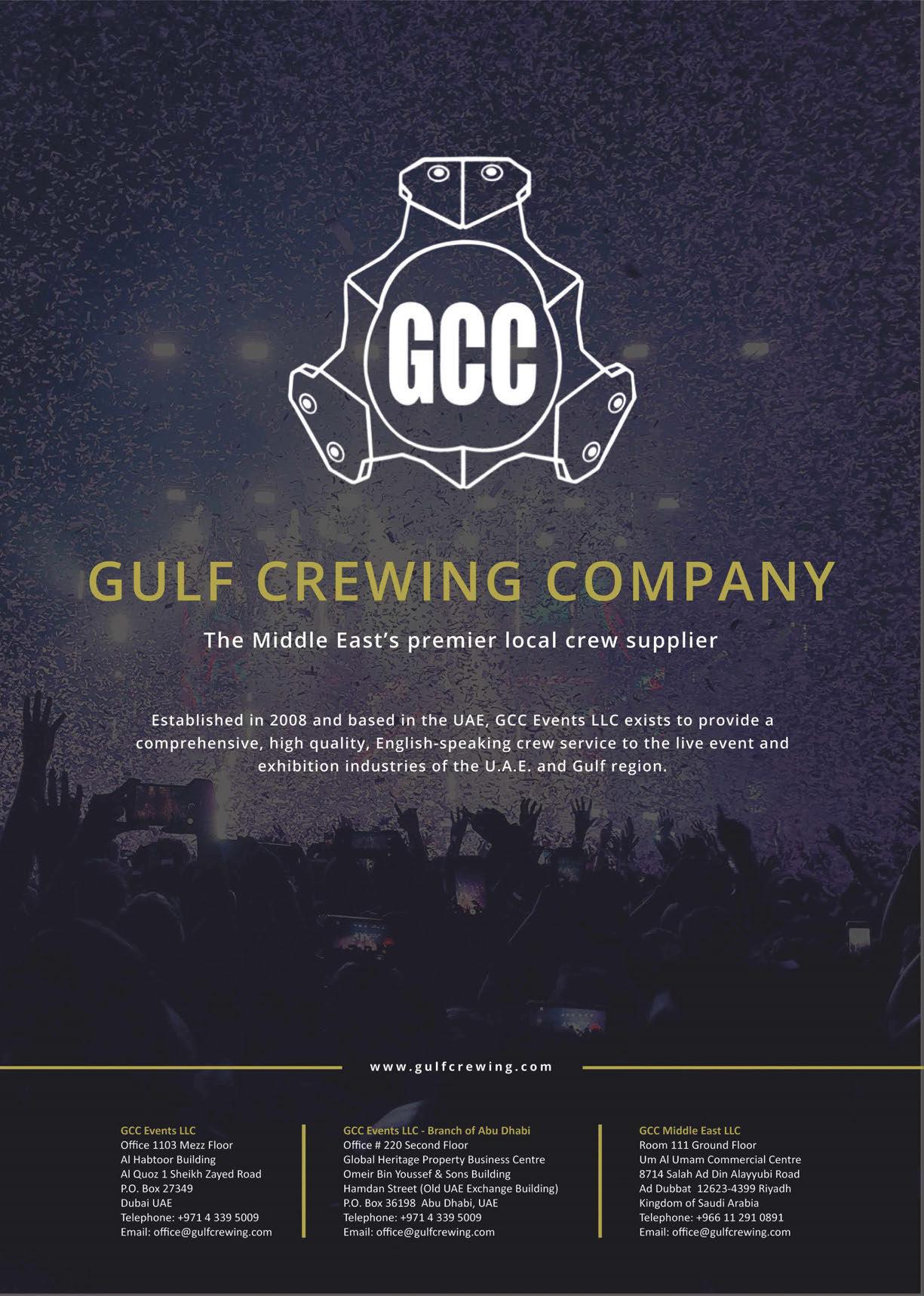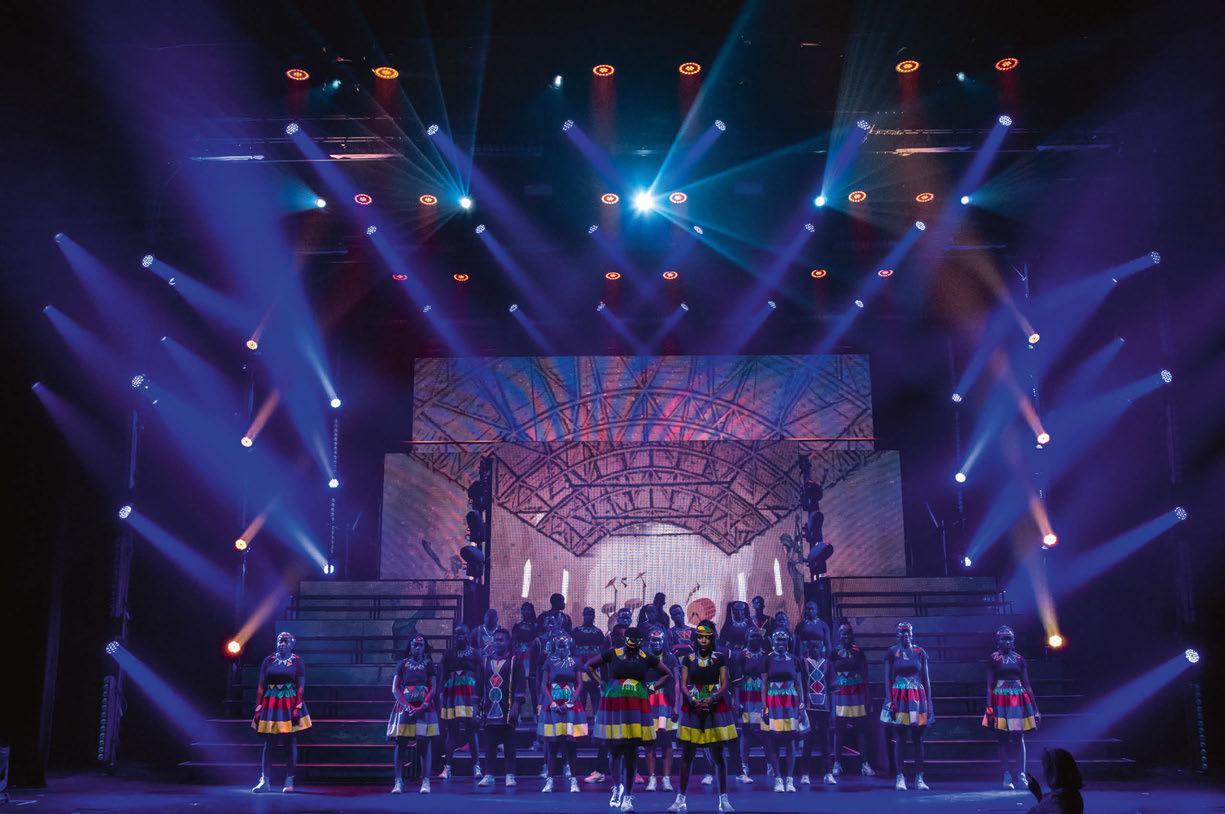
8 minute read
REGIONAL ROUND-UP
AFRICA PULSE – CELEBRATING THE NDLOVU YOUTH CHOIR
GEARHOUSE SPLITBEAM SUPPLIES A FULL TECHNICAL SETUP TO THE TOUR-READY THEATRICAL PRODUCTION.
Finding international fame on America’s Got Talent in 2019, the Ndlovu Youth Choir performed its brand-new production, Africa Pulse – Celebrating the Ndlovu Youth Choir, on 1 May at Montecasino’s Teatro, Johannesburg. Conceptualised and produced by Showtime Management, the show draws upon the touching real-life story of the choir, many of whom are orphans who grew up without electricity or running water.
With the full technical setup supplied by Gearhouse Splitbeam, the production is now set up to easily tour across the globe once travel restrictions are lifted and theatres reopen. “We’ve been fighting, pretty much like everybody else, to survive this pandemic mess we find ourselves in,” said Alistair Kilbee, Managing Director of Gearhouse Splitbeam and Technical Director for the production. “This was the first large-scale event Splitbeam had worked on, besides working on the Phantom of the Opera in Asia during the pandemic, and the first time we could get back into a theatre in over a year.”
The show was made possible through funding granted by the Presidential Employment Stimulus Programme (PESP) under the auspices of the National Arts Council, and while limited wages could be paid to each person on-site, Splitbeam pulled out all stops, generously supplying an abundance of equipment including an MA lighting grandMA2, Vari-Lite VLZ and VL3000 Spots, Robe lighting, Prolyte Trussing, Clear-Com FreeSpeak, and a DiGiCo SD7 amongst other gear.
The project was initiated by Kilbee, who was stuck in quarantine in Taiwan when he heard about the Presidential Employment Stimulus Programme. “I emailed Hazel Feldman, Director at Showtime Management, and suggested that we put on a show to try and get these funds to help crew and performers,” he described. With a week to apply, Showtime’s Matthew Counihan, who also directed the production alongside Lesedi Job, and Splitbeam submitted their proposal.
“The whole point of the production was to generate some income for people who hadn’t worked for a year,” said Kilbee. “They were so excited to be back. Everyone had a great vibe, and the general feeling was that of a family that had been brought back together.” With the Presidential Employment Stimulus Programme funding used to pay staff, proceeds from ticket sales were allocated to Noah’s Art, a theatre food parcel charity assisting the live events industry.
While the show was a success in its own right, it was part of a much bigger plan. “We wanted to design and test a show that could tour internationally and as a result, we now have the riders, the technical specs, the Watchout files, the sound files, the lighting programming files, all of which will hopefully generate income for the
choir and for technicians in the future,” said Kilbee.
Creatives on the lighting side included Oliver Hauser, Robert Grobler, and Glenn Duncan, all ecstatic to be working back on site. “It was a monster of a show to put on from scratch,” he added. “There was programming through the night, on many nights, and a lot of offline programming because we wanted this to be so spectacular – it made us feel that we achieved something great.”
The long-term plan is to tour with nothing except the costumes, choir and core technical team. “I designed the set out of layered scaffoldings because we can access scaff pretty much all over the world,” said Kilbee. “We designed it in a way that LED panels could attach to the structure.” Lighting and audio brands were selected that would also be readily available in most countries. “The production basically needs a few external hard drives with the Watchout content file; the lighting programming; the sound QLab plus the rider, and it can basically be staged anywhere on the planet.”
The other brief agreed upon was a show that could go up on a Monday and open on a Tuesday night, allowing short turnarounds in theatres anywhere in the world. “These are all things that make the financial model work for selling a show going forward,” Kilbee explained. “The entire show is timecoded and built in such a way that if we change numbers around, we can just move in the timecode track and it will all work.”
Back to the performance in South Africa, and there was a tangible excitement from the artists, audience and crew alike; the show was exceptionally well received. “That is why we do what we do. Theatre is all about long hours and hard work driven by our passion and love of the industry. We did this for the love of theatre but at the same time to feed our crews and their dependents as well as our families.” Photos: DWR distribution www.splitbeam.co.za
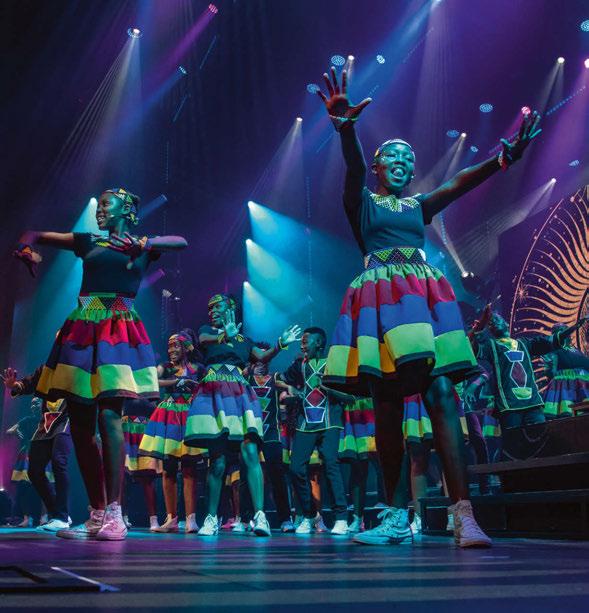
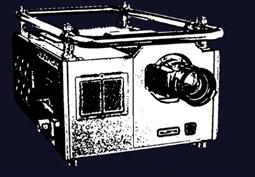
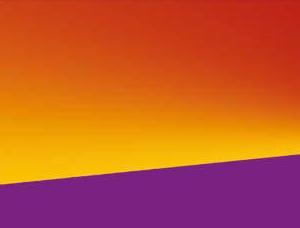


SATEL LITE
MODULAR LASER SYSTEM
(r)evolution
Every once in a while, something comes along that tears up the rulebook and revolutionises an industry. This is one of those moments: the Satellite Modular Laser System from the Visionaries of the display industry – Digital Projection.
SATEL LITE
MODULAR LASER SYSTEM
1996
3,000 lumens 60 kg
2003
16,000 lumens 113 kg
2016
27,000 lumens 132 kg

2020
> 40,000 lumens < 40 kg
The Visionaries’ Choice www.digitalprojection.com
LIFE IN RWANDA
WITH A LONG AND VARIED CAREER THAT’S SEEN HIM TAKE UP VARIOUS HIGH-PROFILE POSITIONS IN BOTH SOUTH AFRICA AND THE UAE, STUART ANDREWS NOW FINDS HIMSELF LENDING HIS EXPERIENCE TO RWANDA EVENTS AS WELL AS THE KIGALI ARENA.
To say that 2020 was a roller-coaster year for the live events industry would be something of an understatement. Like many others in the sector, Stuart Andrews saw his role as General Manager of Johannesburg-based technical production company Sound Stylists disappear overnight due to the catastrophic effects of the COVID-19 pandemic. The main difference in Andrews’ situation, however, was that he had only joined the company less than three weeks prior. “I took up that position in March 2020 and then COVID-19 hit. I was laid off after just 17 days on the job,” he recalled. “It was through no fault of the company – the entire industry was forced to a grinding halt.”
While nobody could have foreseen the circumstances that led to Andrews being made redundant, thankfully the South African already had a long and varied career under his belt, starting out working as an Audio Technician for large hotel casino resorts in South Africa, before embarking on a successful stint in Dubai, spent working first for Jumeirah Hotel Group as AudioVisual Production Manager, before moving to Protec as a Project Manager.
Eventually Andrews moved back to his homeland to take up a job at Gearhouse SA, working in various roles in both Durban and Johannesburg over the years, culminating in a position of Operations Manager of the Johannesburg branch. And it was this wealth of experience that opened the door to another opportunity following his untimely exit from Sound Stylists. “In my time at Gearhouse, I had established good contacts with Rwanda Events and had worked alongside and for them on a number of projects in Kigali. Similarly, during my time in the resorts, I had worked alongside a company called Q A Venue Solutions (QAVS), which had been awarded the management contract for the Kigali Arena on behalf of the government of Rwanda,” Andrews explained.
With Rwanda Events looking for assistance in operations, training, and technical consultancy, and QAVS interested in hiring Andrews for some consultancy, operations and consultancy work at the Kigali Arena, the stars aligned. “These two connections dovetailed for me,” he described. “After sitting at home in lockdown for a year, I jumped at the chance to work with a great team of people who I have worked with before.” So, with the backdrop of the pandemic still playing havoc with the industry all over the world, Andrews once again packed his bags and headed off to Rwanda. “With fantastic convention and accommodation facilities, the city of Kigali has established itself as an international conference destination of choice. However, like most countries, Rwanda has implemented a lockdown and restricted events, which has devastated the local industry,” he reported. At the time of writing the local industry is still awaiting further guidelines on the reopening of events, with the Commonwealth Heads of Government (CHOGM 2021) which was due to take place in the country in June, postponed, many are looking for a catalyst for the phased reopening of the industry.
With a far-reaching remit across his two positions for both Rwanda Events and QAVS, there’s certainly plenty for Andrews to get his teeth into while the industry awaits the return of live events. “Rwanda Events has focused on supplying the complete solution to the conferencing and events market. With four divisions, the company covers everything from event management, to rental and productions, destination management and multimedia,” he explained. “Meanwhile for QAVS, I am reviewing the AV systems that are a legacy of the installation at Kigali Arena. I’m also assisting with a range of other matters, including but not limited to building maintenance, IT, electrical issues and general operations management.”
Looking ahead, Andrews describes the prognosis for the Rwandan live events industry as “good and positive”. He concluded: “Rwanda has stood out very clearly on the continent for its approach to dealing with the COVID-19 pandemic, and this will stand it in good stead for being recognised as a safe and secure destination for business events. While there is a huge growth potential in Rwanda, we can also service East and West Africa from here, so I see Rwanda as very much the place to be – now and in the future.” Photo: Stewart Andrews www.rwandaevents.com www.kigaliarena.rw
